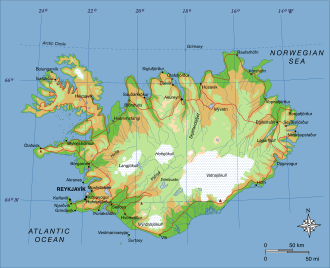Scientific research
Iceland conducts various kinds of scientific research in Arctic matters. An overview of institutions working on Arctic matters can be seen on the website on the Icelandic Arctic Cooperation Network.
Iceland hosts two key research stations: the China-Iceland Arctic Science Observatory (CIAO) in Kárhóll, run by China, and the Mývatn Research Station, managed by Icelandic institutions.
China-Iceland Arctic Science Observatory (CIAO)
Located in Kárhóll, northern Iceland, CIAO is operated by China's Polar Research Institute under a lease with Aurora Observatory. Established in 2018, it focuses on Arctic research, including climate change and environmental monitoring, and is a hub for Sino-Icelandic scientific collaboration. [2]
Mývatn Research Station
Situated at Mývatn, this station is run by Icelandic institutions and has been active since 1975. It conducts research on ecology, limnology, and environmental science, contributing to global understanding of Arctic ecosystems and climate change impacts. [3]
This page is based on this
Wikipedia article Text is available under the
CC BY-SA 4.0 license; additional terms may apply.
Images, videos and audio are available under their respective licenses.
